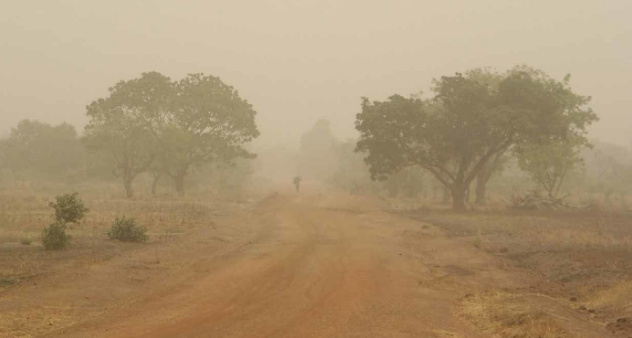Lifestyle
What to do during the Harmattan season in Ghana
Harmattan is a very dry, dusty easterly or north-easterly wind on the West African coast, occurring from December to February.
These are a few advantages of the harmattan season:
- Low incidence of malaria.
- Dries clothes minutes after washing them.
- It aids sleep as it relaxes the body after a long day at work.
- Skin care during this period is a priority as everybody tends to take care of the skin more.
However, effects of the harmattan include:

- Worsening cases of allergies and other environmental related illness such as asthma, constant cough/sneezing, reddish eyes, dryness of the throat and dehydration.
- Infections: During harmattan, there is a high risk of respiratory irritations leading to lung, throat, nose or ear infections.
- Skin Problems with people experiencing dry skin and broken lips and sometimes a cough. Tips to help you during the harmattan
- A lip gloss or lip balm to moisten your lips. Keep this wherever you go. It is not necessarily for women but men can use it to moisten their lips during this period.
- Body cream or pomade to be applied after bathing. This will prevent the skin from looking all white.
- Drink more water to stay hydrated.
- Wear protective clothes such as long sleeves, nose masks,socks, sun glasses and other protective clothings to protect yourself from dust and the weather especially at night.
- Take vitamin C to reduce you contracting catarrh and asthmatic patients need to keep their inhalers with them all the time since the dust can trigger attacks.
- Ladies need to do their hair to prevent breakage. Wear hairstyles that will hide the tips of your hair and keep your hair moisturised.
- Use scarfs to cover unbraided hair.
- Avoid using flights during harmattan because most often the weather is usually hazy and inappropriate for travelling
- Avoid hot showers and baths. Bathing with warm water removes moisture from the skin and can cause dry skin and irritation.